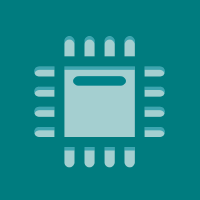Topic Editors



Theories and Applications of Human-Computer Interaction

Topic Information
Dear Colleagues,
Human–computer interaction (HCI) is a field of study exploring how people use technological systems, with a focus on interfaces between people and technological systems. It is a multidisciplinary field that incorporates computer science, behavioral sciences, human factors, psychology, engineering, design, sociology, anthropology, etc. HCI addresses the design, evaluation, and implementation of interactive technological systems with the central objective of making systems more user-friendly and usable for improved performance, satisfaction, safety, and experience in human use.
The past few decades have seen the rapid development and application of varied new forms of advanced technologies for interaction in our daily life and work. Examples include smartphones, wearable devices, robots, virtual reality, augmented reality, autonomous vehicles, ChatGPT, and other AI-based systems. Despite the wide recognition of the fact that emerging technologies benefit human society , the evidence base for optimal/appropriate HCI regarding these technologies remains limited. Thus, HCI has now become an interdisciplinary field in urgent need of significant innovation, extension, and breakthroughs in terms of both theories and applications. In this regard, this Special Issue is interested in empirical and review studies that address innovations in theories, methods, designs, evaluations, and applications of HCI encountered in a wide range of personal and public contexts at present and in the near future.
Topics of interest include but are not limited to the following:
- Innovations in HCI theories, methods, design, evaluation, and applications;
- Innovative HCI applications in industry and complex systems;
- Intelligent human–computer interaction;
- HCI in emerging technologies;
- Human–robot interaction;
- Human–AI interaction;
- Human factors and ergonomics of HCI;
- Multimodal HCI;
- User experience and usability;
- Interface design; Natural user interface;
- Interaction in virtual/augmented/mixed reality;
- Multimodal design and evaluation;
- Psychosocial behaviors with technology;
- Computers in human behavior.
Dr. Da Tao
Dr. Tingru Zhang
Dr. Hailiang Wang
Topic Editors
Keywords
- human–computer interaction
- multimodal HCI
- human factors
- user experience
- interface design
- artificial intelligence
- human–AI interaction
- natural user interface
Participating Journals
| Journal Name | Impact Factor | CiteScore | Launched Year | First Decision (median) | APC | |
|---|---|---|---|---|---|---|

Electronics
|
2.9 | 4.7 | 2012 | 15.6 Days | CHF 2400 | Submit |

Healthcare
|
2.8 | 2.7 | 2013 | 19.5 Days | CHF 2700 | Submit |

Informatics
|
3.1 | 4.8 | 2014 | 30.3 Days | CHF 1800 | Submit |

Machine Learning and Knowledge Extraction
|
3.9 | 8.5 | 2019 | 19.9 Days | CHF 1800 | Submit |

Sensors
|
3.9 | 6.8 | 2001 | 17 Days | CHF 2600 | Submit |

Systems
|
1.9 | 3.3 | 2013 | 16.8 Days | CHF 2400 | Submit |

ISPRS International Journal of Geo-Information
|
3.4 | 6.2 | 2012 | 35.5 Days | CHF 1700 | Submit |

MDPI Topics is cooperating with Preprints.org and has built a direct connection between MDPI journals and Preprints.org. Authors are encouraged to enjoy the benefits by posting a preprint at Preprints.org prior to publication:
- Immediately share your ideas ahead of publication and establish your research priority;
- Protect your idea from being stolen with this time-stamped preprint article;
- Enhance the exposure and impact of your research;
- Receive feedback from your peers in advance;
- Have it indexed in Web of Science (Preprint Citation Index), Google Scholar, Crossref, SHARE, PrePubMed, Scilit and Europe PMC.

